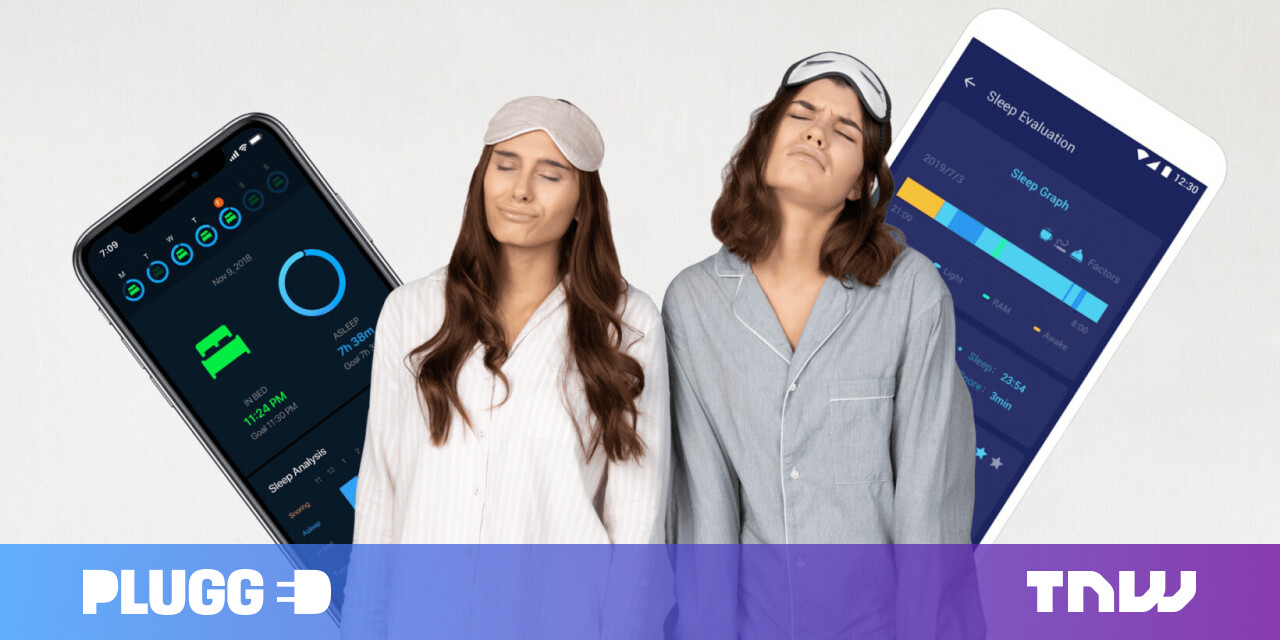It is estimated that one in three people report regular sleep complaints. So it is not surprising that people are more concerned than ever with getting enough sleep. This flourishing interest saw an explosion of sleep trackers that measure how many hours of sleep you sleep each night.
As we sleep, we go through “deep”, “light” and “rapid eye movement” (REM) sleep cycles. The “deep” part of our sleep is mainly what leaves us feeling refreshed the next day. Most sleep trackers are watches worn on your wrist and work by monitoring your body movements while you sleep to determine how much time you have probably been awake or asleep. Some devices also check for changes in heart rate during sleep to estimate how much time you spent on each sleep cycle.
Despite its popularity, only a few studies have investigated the accuracy of sleep devices. So far, research has found that compared to polysomnography tests – which experts use to diagnose sleep disorders – sleep trackers are only required 78% of the time when identifying sleep versus wakefulness. That accuracy drops to about 38% when estimating how long it took participants to fall asleep.
Polysomnography tests are the most accurate because they track brain waves, heart rate, breathing, blood oxygen levels and body and eye movements during sleep, using electrodes placed on the skin and scalp . Analyzing brain wave patterns is the only definitive way to know if someone is awake or asleep and what stage of sleep they are in.
But because sleep trackers are worn on the wrist, they make their nighttime sleep estimates by measuring body movement and sometimes heart rate data. Because we move frequently during all stages of sleep, the movement provides little clue as to what stage of sleep we are in. Many sleep devices also fail to differentiate one stage from another based on movement alone.
Since many consumer sleep devices have not been compared with polysomnography tests, it is difficult to determine their accuracy rate. In addition, the algorithms that companies use to make predictions about sleep are unknown, making it difficult for scientists to identify whether the assumptions made by sleep devices are valid.
Studies also show that sleep devices perform poorly in people with insomnia. People with insomnia tend to remain very quiet in bed in an attempt to fall asleep. But because sleep trackers only measure movement, one study found that clocks were unable to differentiate sleep from wakefulness in people with insomnia.
Clocks that incorporate heart rate data tend to be a little more accurate when measuring sleep duration because the heart rate fluctuates during the different stages of sleep. However, even on devices that track heart rate, many experts are still unsure of their accuracy because of the limited research on them and the differences between each device. For example, a study of sleep heart rate trackers showed that two consumer devices tend to underestimate the amount of deep sleep users achieved within 46 minutes.
[Read: How Netflix shapes mainstream culture, explained by data]
Sleep anxiety
Ultimately, this leads to the question of whether knowing about our sleep is really beneficial for us. After all, one of the best ways to stay awake is to try hard to sleep. It seems counterintuitive, but we see it clinically in patients with chronic insomnia, for whom excessive concern about sleep causes anxiety and discouragement due to loss of sleep – leading to more insomnia.

A study published by our research group showed that this effect can be exacerbated by vigils. Participants received sleep clocks and were asked to measure mood, daytime thought processes and drowsiness at regular periods throughout the day. However, the “sleep score” provided by your watches has been manipulated to show an increase or decrease in sleep quality. The amount and quality of sleep that participants in both groups had was the same.
The study found that those who were told they had a bad night’s sleep showed a lower mood, difficulties with thought processes during the day and increased sleepiness. Those who were told they had a great night’s sleep showed the opposite.
This shows us that data from these sleep trackers can change your emotional state and concentration levels during the day – even if the readings are accurate. Considering that people who have insufficient sleep may be more likely to use sleep tracking devices, this can be a concern, as it can make mental health problems worse.
Although few studies have examined this link so far, a report noted that more patients are seeking treatment for sleep difficulties perceived as a result of feedback from sleep trackers. Even when these complaints are disproved by a polysomnography test, clocks continue to provide a source of sleep-related anxiety. As studies have shown that overuse of wearable devices (such as those used during exercise) increases anxiety and depression about health, there are concerns that sleeping devices may have a similar effect.
While sleep devices may be useful for those who generally sleep well, but are interested in tracking or establishing a better routine, people who have insufficient sleep or mental health problems may want to avoid them. But the best metric for measuring how good your sleep was is to see how you feel each day. If you are tired and having trouble concentrating, going to bed a little earlier each night can help you feel more rested – no device is needed.![]()
This article by Matthew Reid, a postdoctoral researcher, Sleep and Circadian Neurosciences, University of Oxford, has been republished from The Conversation under a Creative Commons license. Read the original article.
Did you know that we have a consumer technology newsletter? It’s called Plugged In – and you can sign it right here.
Published on January 17, 2021 – 09:00 UTC
